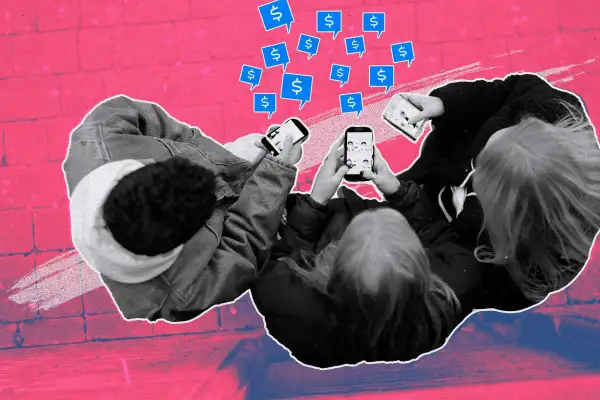Venmo Just Launched Accounts for Teenagers

Mobile payment app Venmo announced the release of Venmo Teen Accounts on Monday, allowing teenagers between 13 and 17 their first opportunity to use the service.
The payment company's announcement continues a growing trend of peer-to-peer transaction companies opening up their services to teenagers. The new account for teens also comes with plenty of features that allow parents to maintain broad control over their kids' money.
Venmo, a PayPal subsidiary, is expanding its reach by offering new accounts aimed specifically at teens call Venmo Teen Accounts, complete with a Venmo Teen Debit Card. Previously, the app allowed only users who are 18 or older to open accounts. Venmo's new offering follows on the heels of a move by its competitor Cash App, which became available to teenage users in 2021.
Through its new product, Venmo is looking to gain younger people as customers while simultaneously giving parents the necessary tools to monitor and control their kids’ spending. Each Venmo Teen Account is tethered to the existing account of the parent, and parents can view their teen’s friends list and transaction history. They can also block specific accounts from completing transactions with their child’s account.
The Teen Accounts come with a debit card issued by Venmo partner MasterCard. This card is tied to the teen’s Venmo balance, rather than a bank account. Parents have plenty of control over these cards as well, with the ability to lock and unlock the card and manage PIN settings.
How to open a Venmo Teen Account
Venmo is rolling out the new service in June for select users. A wider release of the product will occur in the weeks following this limited release, the company says.
Creating a Venmo Teen Account is done entirely through the Venmo app. Parents must navigate to their “Me” settings to find an option to open a Venmo Teen Account. From there, it’s as simple as selecting the desired color for their teen’s debit card and giving some general information like name, birthdate and address. Parents can add to their child’s balance in the app.
What teens can do with Venmo Teen Accounts
Once they have an account, teenagers can enjoy the same peer-to-peer transactions adult Venmo users have, albeit with the discretionary limits of their parental controls. Venmo does not say whether there is a limit on how much teens can send or receive in a given time period, but the parental controls allow parents to limit balances to whatever is comfortable for them.
The Venmo debit card provides features more like that of a traditional checking account. With it, teens are enabled to shop at retail stores and pull money out of MasterCard-supported ATMs for free (other ATMs will require a $2.50 withdrawal fee). The company limits daily withdrawals to $400.
Teen card holders are able to set up a direct deposit to their accounts. However, the company notes that the cards are not eligible to receive federal or state payments, meaning any sort of tax refunds teens might secure through their jobs must still be received by check or direct deposit to a bank account.
Venmo or Cash App?
Venmo's announcement came over a year and a half after Cash App released its own service for teenagers. This may have parents wondering: Is Venmo or Cash App the better option for their family?
There are a few differences between the two. Cash App's Cash Card is offered through Visa, and the company caps how much a teenage user can send or receive at $1,000 per 30-day period. By contrast, the Venmo debit card is run by MasterCard, and there is no limit on transactions for teens other than those set by their parents.
Cash App also prevents teen users from transacting in certain stores, as well; teens can't send money at bars, hotels, casinos and other places. Cash App bars users under 18 from investing in cryptocurrency also. While Venmo has a cryptocurrency trading feature, it has not said whether the service will be available to Venmo Teen Accounts.
Best Banks and Credit Unions for Students in 2023
‘Free’ Games Like Candy Crush and Counter-Strike Are Wrecking People’s Finances
